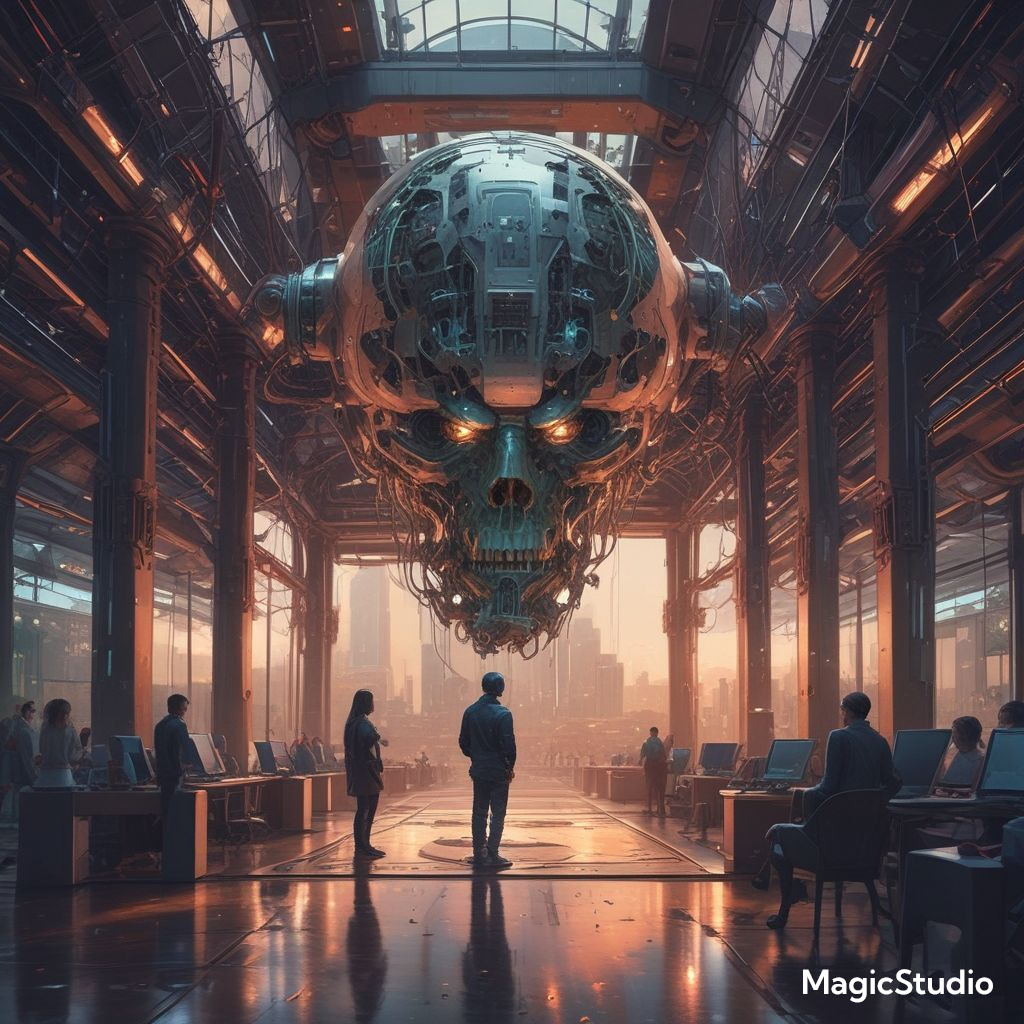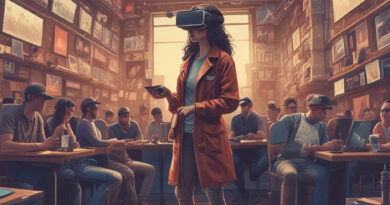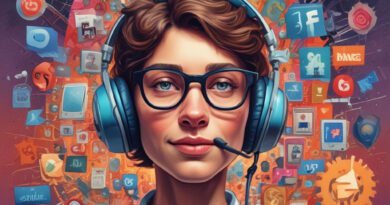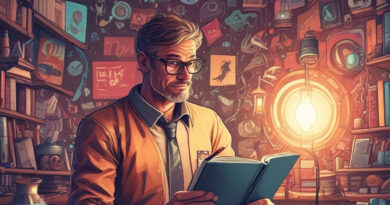AI and Machine Learning: The Future of Technology in 2025

In recent years, Artificial Intelligence (AI) and Machine Learning (ML) have made waves across industries, revolutionizing how businesses operate, how we interact with technology, and even how we make decisions. As we move toward 2025, AI and ML will become even more integrated into our daily lives, offering immense opportunities and challenges. Here’s what you can expect from AI and ML in the coming years.
1. AI-Powered Personal Assistants: Smarter and More Efficient
Voice assistants like Siri, Alexa, and Google Assistant are already part of many people’s daily routines, but in 2025, AI-powered assistants will become much smarter. These assistants will not only respond to simple commands but also predict needs, automate tasks, and integrate seamlessly into other aspects of our lives.
What to expect:
- Advanced Personalization: AI assistants will be able to understand context better and learn from your habits, tailoring responses, schedules, and recommendations accordingly.
- Proactive Assistance: Instead of waiting for commands, AI assistants will anticipate your needs and take actions on your behalf. For example, booking your next appointment based on your preferences or adjusting your home’s temperature before you arrive.
Why it matters: A more intelligent AI assistant will save time and make daily life more convenient, helping individuals stay organized and efficient.
2. AI in Healthcare: Transforming Diagnostics and Treatment
AI and ML are already making significant strides in healthcare, from analyzing medical data to assisting in diagnosis and treatment plans. By 2025, we can expect AI to play an even larger role in improving patient outcomes and personalizing healthcare.
What to expect:
- Predictive Healthcare: Machine learning algorithms will analyze patient data and predict potential health risks before they manifest, allowing for earlier interventions.
- AI in Imaging and Diagnostics: AI tools will become highly advanced in analyzing medical images such as X-rays, MRIs, and CT scans, diagnosing conditions with incredible accuracy and speed.
Why it matters: AI in healthcare can help doctors make better-informed decisions, offer personalized treatment plans, and ultimately save lives by catching conditions early.
3. Machine Learning in Cybersecurity: Fighting Threats in Real-Time
As cyber threats continue to evolve, traditional security measures are struggling to keep up. AI and ML are being integrated into cybersecurity systems to provide real-time threat detection and response.
What to expect:
- Threat Detection: Machine learning will analyze patterns and behaviors to identify potential threats or breaches before they can do significant damage.
- Automated Response: AI systems will automatically take action, such as isolating infected devices or blocking suspicious activities, minimizing the impact of a security breach.
Why it matters: With the increasing frequency of cyberattacks, AI and ML are crucial in building more robust, proactive cybersecurity systems that can safeguard sensitive data.
4. Autonomous Vehicles: The Road to Fully Self-Driving Cars
Self-driving cars have been a topic of discussion for years, and by 2025, we will likely see a significant leap toward autonomous vehicles becoming mainstream. Machine learning will be at the core of these vehicles’ decision-making systems.
What to expect:
- Improved Safety: AI and ML will enable autonomous vehicles to analyze traffic conditions, pedestrians, and road hazards in real-time, reducing accidents caused by human error.
- Enhanced Efficiency: AI will optimize driving routes, traffic flow, and energy consumption, making transportation faster, more affordable, and environmentally friendly.
Why it matters: Autonomous vehicles could reshape our cities, reduce traffic congestion, lower accident rates, and even provide greater mobility for people with disabilities or the elderly.
5. AI in Content Creation: Revolutionizing Marketing and Media
AI and ML are already being used in content creation, but by 2025, their capabilities will expand to automate and personalize content production, revolutionizing marketing and media.
What to expect:
- Automated Content Creation: AI will be able to write articles, generate social media posts, and create video content with minimal human input, making content production faster and more efficient.
- Personalized Content: AI algorithms will analyze user preferences and create tailored content, advertisements, and recommendations based on individual tastes.
Why it matters: Businesses can expect to streamline content production, increase audience engagement, and deliver highly personalized experiences to consumers using AI-driven platforms.
6. Ethical Concerns of AI and ML: The Need for Regulation
As AI and ML become more powerful, concerns about their ethical implications will grow. Issues such as data privacy, algorithmic bias, and the displacement of human workers by machines will need to be addressed.
What to expect:
- Data Privacy: With AI systems collecting vast amounts of personal data, ensuring privacy and security will become a priority, requiring stronger regulations and oversight.
- Addressing Bias: Efforts will be made to ensure that machine learning algorithms are not biased, providing equal opportunities and fair treatment for all individuals.
- Job Displacement: The automation of jobs due to AI will lead to a shift in the workforce, requiring reskilling programs and policies to ensure a smooth transition.
Why it matters: Ethical considerations will shape the development of AI, and policymakers will need to strike a balance between innovation and safeguarding public interests.
7. AI and ML in Entertainment: From Personalized Recommendations to Virtual Reality
AI and ML are already transforming the entertainment industry, but the next wave of innovation will offer more immersive and personalized experiences.
What to expect:
- Personalized Recommendations: AI-driven algorithms will deliver highly accurate movie, TV show, and music recommendations based on your preferences and viewing history.
- Virtual Reality (VR) and Augmented Reality (AR): AI will power more interactive VR and AR experiences in gaming, movies, and even education, blurring the lines between reality and virtual worlds.
Why it matters: AI in entertainment will enhance user experiences, offering greater interactivity, more personalized content, and new ways to engage with media.
8. The Role of AI in Climate Change Solutions
AI and machine learning will also play a crucial role in addressing global challenges like climate change by optimizing energy use, reducing carbon footprints, and developing sustainable solutions.
What to expect:
- Energy Efficiency: AI will analyze energy consumption patterns and suggest ways to reduce waste, leading to more energy-efficient homes and businesses.
- Climate Modeling: Machine learning algorithms will help scientists develop more accurate climate models, allowing for better predictions and strategies to mitigate climate change.
Why it matters: AI has the potential to accelerate efforts in combating climate change, contributing to a sustainable future for the planet.
Conclusion: AI and Machine Learning are Reshaping Our Future
AI and machine learning are poised to transform industries, enhance daily life, and solve some of humanity’s most pressing problems. As these technologies continue to evolve, they will open up new possibilities, but also present challenges that require careful consideration. The future of AI and ML in 2025 and beyond looks promising, with advancements in healthcare, transportation, security, entertainment, and beyond.
As we move forward, it’s important for both consumers and businesses to stay informed about these technologies and their impact on our world. With the right balance of innovation and regulation, AI and ML will be a driving force in shaping a better tomorrow.



